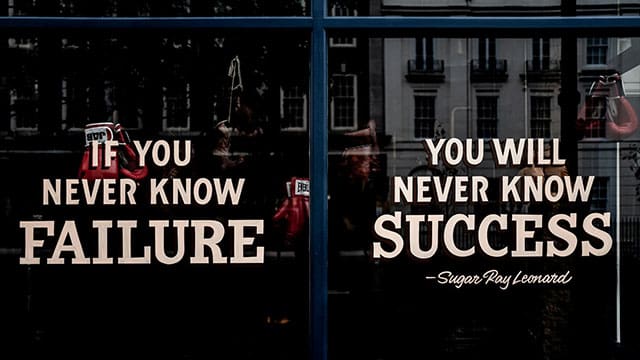Let’s face it, we all try to avoid admitting our mistakes and failures, but hey, sometimes we just can’t hide the evidence of our epic flops!
 A colleague of mine is a private teacher who teaches students from ages 11 through adult. Over the years, she’s noticed an interesting trend – young people, for the most part, are resilient when they make mistakes. They typically don’t brood about it, they don’t get too bent out of shape, and they tend to get back on the proverbial horse and give it another go.
A colleague of mine is a private teacher who teaches students from ages 11 through adult. Over the years, she’s noticed an interesting trend – young people, for the most part, are resilient when they make mistakes. They typically don’t brood about it, they don’t get too bent out of shape, and they tend to get back on the proverbial horse and give it another go.
Adults, on the other hand, tend to exhibit opposite responses. They bring to their lessons the mistaken belief that just because they’re adults, they should learn faster and their progress should be better than a child’s. In other words, they bring unreasonable expectations to their lessons, which creates a lot of inner conflict.
What do you think? Do you believe you won’t make mistakes just because you’re an adult?
I’m here to tell you that, child or adult, it doesn’t make any difference one way or the other. Everyone makes mistakes – everyone fails at something. Avoiding mistakes shouldn’t be the objective; we should embrace our mistakes, learn from them and become more adaptive.
 Photo by the blowup |
| Related Stories |
| How to keep an explosive temper from hijacking your life
|
| Focus is all that is required to master the game of life
|
| Why business failures are a good thing
|
When was the last time you heard someone say that they “failed” at something? It seems that nowadays the use of the word “fail” is not acceptable. Except for politicians and sports commentators, who delight in demonstrating the failings of others, no one wants to point out the glaring truth in certain situations, i.e. that someone failed (or made a mistake).
Several years ago, the language trend seemed to move toward finding the best in each and every life experience, regardless of the situation or outcome. There was the tendency to replace the term “failure” with “learning experience” or even “qualified success.” The result seems that no one wants to admit to failure, even if that fact is patently obvious.
Yet what is wrong with admitting to making mistakes, or “heaven forbid,” a failure? The next time you try to cook a soufflé and end up with a disgusting mess, why shouldn’t you be able to call a spade a spade? Using that experience to learn and move forward can be positive and good for the inner conflict that often appears in our heads. Let’s get really honest: have any of us succeeded at absolutely everything we have tried?
Using your unsuccessful experiences – your failures – as opportunities for learning and growth is good. Rather than beat yourself up, ask yourself what you learned (I am not a plumber) and figure out how to do things differently the next time (hire a professional plumber). Failure is not a disease; it simply means not attaining your desired outcome. You make a mistake or fail, accept it, and carry on; you thereby demonstrate resiliency and the ability to bounce back. Remember that there’s a huge difference between “I failed at that particular task” and “I am a failure.” Just because you didn’t reach a particular goal does not mean you are a failure. It just means you need to shift and give it a go again, differently.
Not letting fear of your failures stop you from trying something is crucial. And especially, don’t let that fear prevent you from attempting something difficult. As Albert Einstein said, “Anyone who has never made a mistake has never tried anything new.”
Faith Wood is a professional speaker, author, and certified professional behaviour analyst. Before her career in speaking and writing, she served in law enforcement, which gave her a unique perspective on human behaviour and motivations. Faith is also known for her work as a novelist, with a focus on thrillers and suspense. Her background in law enforcement and understanding of human behaviour often play a significant role in her writing.
For interview requests, click here.
The opinions expressed by our columnists and contributors are theirs alone and do not inherently or expressly reflect the views of our publication.
© Troy Media
Troy Media is an editorial content provider to media outlets and its own hosted community news outlets across Canada.


